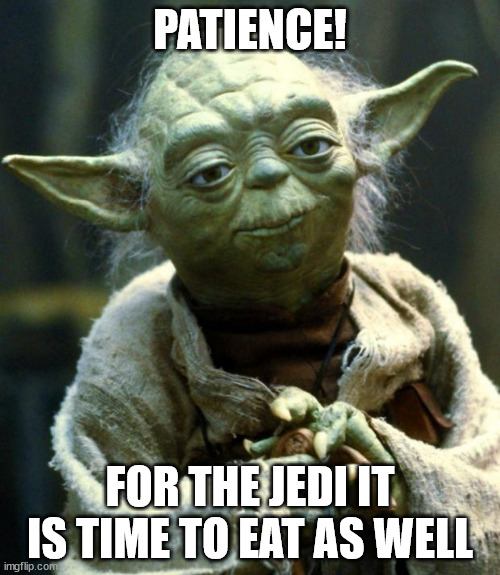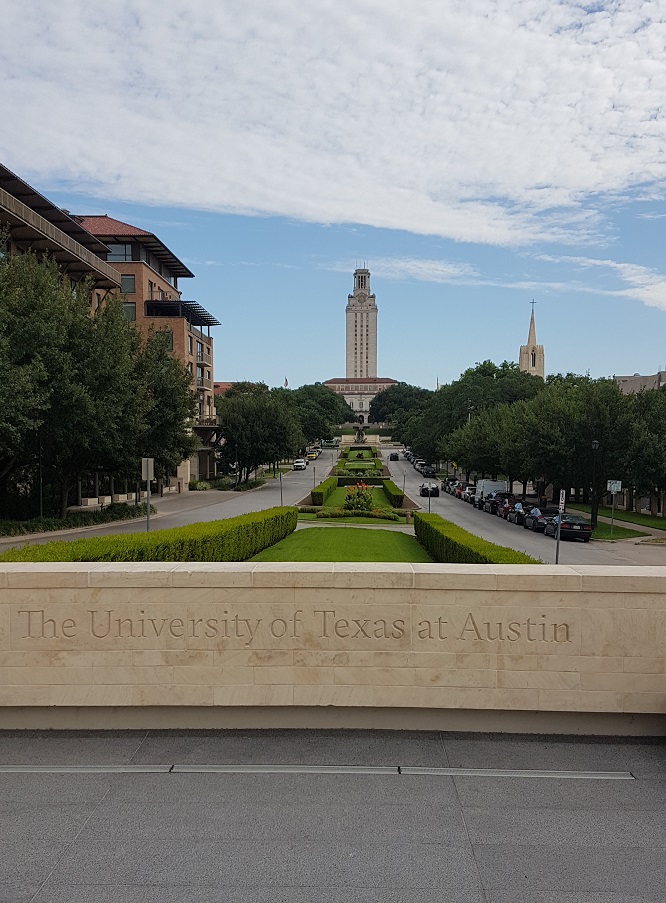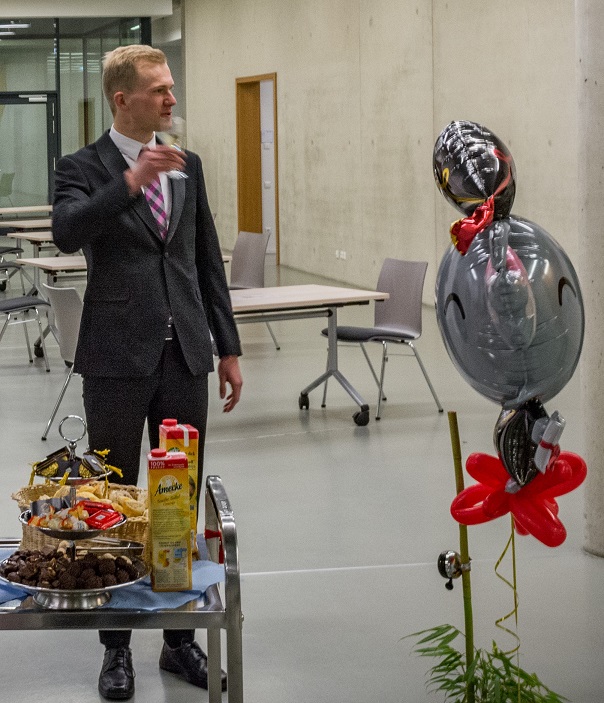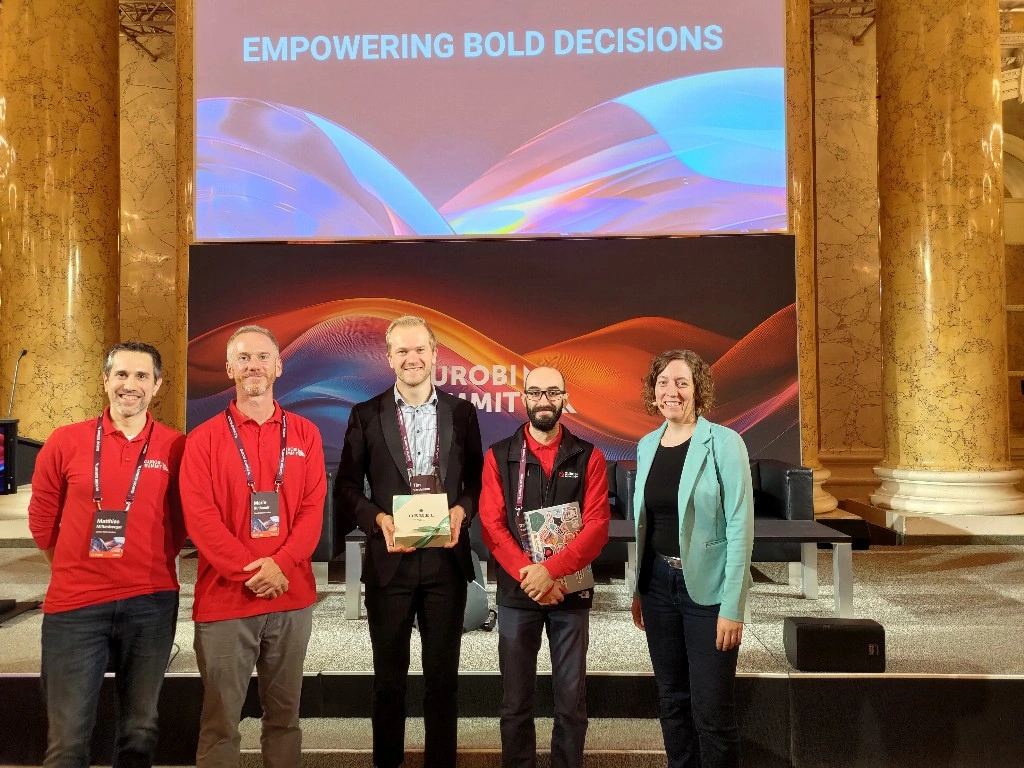
by Tim Varelmann
During my time as PhD candidate, I was desperate for advice that was actionable on a daily basis. After graduation (watch out! Survivorship bias! [1]), I can now articulate the advice I would give to myself. My field of research was the development of mathematical models and intelligent algorithms to optimize the way we operate electricity grids with many renewable power sources. I think the recommendations in this article apply in at least all the technical domains, but of course your mileage may vary in specific situations.
I want to formulate tips to answer the question "What is the most important thing I should do today?" every morning. This article wraps my advice in a description of how I view the path to a PhD in retrospect. In my perception, this path comprises several phases and one important turning point: Finding your niche. Finding a research niche is an important turning point, because it pivots what the most efficient working way is.

I think finding a research niche is fundamentally a creative task. It depends on the ideas and problems a researcher encounters, as well as their timing. These encounters are subject to luck. Fortunately, doing a PhD is not just a passive submission to luck, but there are things you can do to improve your chances. I think you can dramatically improve your chances through deliberately developing 'scientific creativity'.
Creativity requires a relaxed state of mind. I recommend that beginning researchers should not try to enforce their success through working long hours and dedicating an over-proportional amount of mental energy towards their PhD. Implementing this advice feels counter-intuitive, especially to ambitious students. Nevertheless, working feverishly inhibits creativity and, therefore, inhibits the success of early researchers.
You may argue that a lot of wildly successful scientists have dedicated their life to science. They have little space in their lives for anything else. I would even admit that that makes them successful. However, there is a fundamental difference between these people and beginning researchers: Successful scientists already have well-trained creative processes, a pipeline full of worthwhile research projects - and a PhD. All these things develop quickly once a researcher has identified a niche to occupy. Until that point, nourishing your creativity is more important than dedicating as many resources as possible to your work.
With this perspective in mind, you may ask: "What should I do from 9 to 5 while searching for my research niche?" Admittedly, "deliberately developing 'scientific creativity'" is not the actionable advice that I had promised. I think that during the normal working hours, you should make an effort to gently direct the creative episodes you are nourishing by a well-balanced life into scientific directions. In the following description of my path to the PhD, I will break this target down to specific tasks. I will refer to them as 'elemental tasks'. They are small enough to achieve 2-4 of them within a day and they can be repeated until luck inevitably strikes and moves the researcher to the next phase. Therefore, make sure to build your schedule with these elemental tasks EVERY SINGLE WORKDAY. Then, try your very best not to worry about the short-term results of your work. Making sure you increase your chances of finding a niche every day is your best bet.
The primary motivation for me to pursue research was the opportunity to become an expert in my field of choice. I was eager to work towards that goal on full throttle - the excitement lasted for almost 3 weeks. I had the impression that I had to define an area to become an expert in. However, this was not like picking a course I wanted to attend. I had no idea what I wanted! How would I know? I was in no position to come up with reasonable criteria to distinguish desirable areas of expertise from undesirable areas of expertise. I also did not know what steps to take to be able to make such a decision. To change that, my only option was to do something [2]. Literally anything!
The first thing I did was to talk to my professor, Alexander Mitsos. Our meeting revolved around my perceived confusion, and my professor would compassionately tell me such thoughts were normal. However, the discussion failed to move me any further towards what I should do or how to decide what to do by myself. Among many vague tips I received, the most actionable was to read the publications of my more senior colleagues. In the absence of more details (Which papers exactly? Which papers first? How deep or shallow to read?), I read my colleague's papers, randomly selected. Afterwards, I read papers of researchers that my more senior colleagues often cited and attended some talks of colleagues and their collaborators from other universities. Without realizing it, I started the first phase of the process that lead me to a PhD already 5-6 weeks after my start. At the time, it did not feel as if I had found a path. Here is how I would describe the first phase today:
In the familiarization phase, a researcher becomes familiar with current research and its foundations. The following properties characterize it:
Goal:
Increase the chances of generating ideas for original contributions
Measure:
Number/frequency of generated ideas
A valid measure to quantify the progress towards increasing the chances of generating ideas is the frequency of idea generation. The crucial issue with this measure is that it is a "lag measure" [3]: It measures success that has already occurred or failed to appear. The actions that influenced the measurement can no longer be changed. Therefore, such a measure is not useful in deciding how to achieve success. As I learned from Cal Newport's book "Deep Work", knowledge workers should focus on so-called "lead measures" [3]. Lead measures quantify the amount of actions taken that will lead to future success. This fundamental difference to lag measures allows to translate a lead measure directly into actionable tasks. In this phase, a great lead measure is the number of papers read and understood. Here, the corresponding task would be: read and understand one or two papers of the colleague next door today. These tasks which correspond to lead measures are the elemental tasks.
Lead measure (elemental tasks):
Number of papers read / talks attended and understood
I also want to answer the questions I had regarding the details when I got the advice to "read papers".
Actionable advice:
Read all papers of the current colleagues in your immediate research environment. Understand them so deeply that you can formulate their novel contribution to science. Ask the (first) author to confirm or correct your brief condensation, then review the paper with their response in mind for a last time. Which of these papers should you read first, i.e., today? Roll the dice! This is an insignificant decision. Just make sure do decide fast, so that more time for reading remains.
I want to finish this section with a note on the advice to "follow your gut". I think it is generally good advice, both for big and small decisions. However, once again, it is typically not implementable straight away. Humans are easily overwhelmed when they enter a new, unexplored domain [4,5]. In particular, when you just started a PhD, hearing your inner voice or perceiving your gut feeling can be impossible due to sensory overload.
For big decisions, I like the concept that Russ Roberts elaborated on in The Tim Ferriss Show #613 [6]: When you made a good effort to compile a list of pros and cons, but still can not decide, then think about the identity you want to strive for. Make the decision that sets you on a trajectory closer to that desired identity.
For small decisions, it's useful to roll the dice to decide. Doing so is the most explicit way of acting out your submission to luck. Some days, your inner voice remains silent or imperceptible. Then, the choice does not matter -as long as a choice is made-, so that you can execute an elemental task that leads to success. Other days, you might feel a resistance to follow the order of a die. Then, explicitly acting out the submission to luck has brought your gut feeling back into your perception, as is beautifully described in this poem. Rolling the dice enabled you to articulate that you do prefer a particular option, although you might not have a fully developed reasoning to support this preference.
Gut feeling always stems from some form of experiential knowledge and it may be inconsistent, so know your biases [1]. However, if gut feeling is perceptible, following it is a good idea, as it relates to your experience. The dice you would roll alternatively do not have experience. Often your gut is right, leading you to a good decision. Sometimes your gut is not right, but remember that you are in for the long run and that your gut feeling is an amorphous mixture of past experiences. If this gut feeling makes a suboptimal decision, at least you generate a novel experience that will update your gut feeling (and is the only way to do so), so you will make better gut-following decisions in the future.
When I had generated some ideas, the existence of some of them demotivated me to continue reading papers and attending talks. As my gut feeling became more and more paramount again, I wanted to implement the ideas. This is the start of the second phase, mixing into the ongoing first phase, about 2 months after the start of the first phase.
The exploration stage is a transition from generating ideas to executing some of them to learn from the impediments to their execution. It exhibits these characteristics:
Goal:
Increase the chances to generate high-quality ideas (i.e., their implementation is possible, and reveals a novel and relevant contribution to science)
Measure:
Number of good ideas generated in day-to-day life
Lead measure (elemental tasks):
Number of ideas executed, and depth of analysis of the roadblocks encountered during execution
In this terminology, a roadblock is a problem preventing publication of the idea that seems currently unsolvable to you, your colleagues, and supervisors.
Actionable advice:
Implement the ideas you perceive as most promising. Carefully analyze why the idea is not publishable.
Implementing seemingly good ideas enables beginners to improve their judgements on the quality of ideas. This, in turn, increases the chance of implementing better ideas next time, which provide even better learnings and start a self-reinforcing process. I spent a year in this combination of the first and second stage: Reading and listening, executing on ideas, running into a roadblock, analysing it to make more sophisticated choices which ideas to execute the next time I had a creative episode.
The tradeoff between reading and listening (1st stage lead measures) and executing ideas (2nd stage lead measures) is impossible to optimize practically. The only thing that is clear is that both need time. Ideally, the weight should monotonically move from reading to executing, but in practice, it happens that one has over-emphasized execution and needs to refocus on reading & listening more again. Once again: when in doubt whether to read another paper or implement an idea, do not agonize, roll the dice, and start working.
During this phase, my professor encouraged me to hire my first student assistant. This was good advice, although I did not feel competent to supervise a student assistant. I simply did the best I could, both in the hiring process and defining the work that I delegated, then improved if I noticed something suboptimal. I seemed to have had beginner's luck because the student I hired worked diligently, helped me explore my ideas, and I also felt like she was properly challenged. When she left to write her Master's Thesis, I concluded that during our collaboration I learned more about effective communication and delegation than she did from me about mathematical optimization. Learning to supervise a student 'on the job' was a win-win situation.

After one year and three months, I went on a research exchange to Austin, Texas. I felt ill-prepared because although I did have an idea what to do there, I already ran into a roadblock on that path before I entered the plane to Bat City. However, this time I got lucky: My host, Michael Baldea, shared some ideas he generated for me and my stay in his group. I thought it was a nice gesture. In particular, Dr. Baldea wanted to try pooling large energy consumers to improve the confidentiality of their internal models. During our discussion, I had a bright idea: Using a decomposition algorithm would not require pooling, but still retain confidentiality of consumer's models. I am pretty sure this idea would not have arrived had I not read a bunch of literature on decomposition algorithms and ran into a bunch of roadblocks trying to build some useful decompositions! Now, I recognized a problem that was amenable to be solved with a decomposition, and I could articulate that. Again, I executed on the idea, which presented no roadblocks, only some usual technical challenges. For the first time, I had created novel and relevant research results. Now, I could apply what I had learned in the scientific writing courses of the language center of RWTH Aachen University. These courses were great, and I had taken them early because colleagues encouraged me to do so - another superb advice. Finally, the first milestone towards my PhD, my first publication, was peer-reviewed and published. It turns out I had found my niche :)
When I came home from Texas, the experience abroad had further improved my ability to identify good ideas. I went back to the ideas I had been working on earlier, but pivoted some aspects, eventually leading the idea towards becoming my second publication. I noticed that executing on ideas was occupying an ever-increasing fraction of my workday. The reason was that idea execution was not a matter of exploring the roadblocks that occurred anymore. Although roadblocks could still have appeared, they did not. Instead, the ideas I executed on led to significant results, and my task became to produce these results and present them in a publishable manner. Again, I went into the next phase:
The productive phase is about creating research results and preparing them for publication and including them in the PhD thesis. This phase is less creative, as the following properties show:
Goal:
Maximize productivity by implementing promising ideas, and processing the results (utilizing help from student assistants)
Measure:
Number of peer-reviewed publications.
Lead measure (elemental tasks):
Hours of deep work [3] spent with the components of a publication: implementing software, generating results, analyzing and visualizing the results, writing them down.
Actionable advice:
Before leaving work, identify the 2-3 most important things to do the next day (these things have to be small enough to not fill your day, but they may fill half the day). In your most productive time of the day (often in the morning, except for night owls), check these things off. Make 90-minute slots in which you do not deal with anything else, including reading emails. Keep your assistant's work pipelines well fed with clearly defined milestones and grant them autonomy to achieve those milestones. I have found the core contents in David Allen's book "Getting Things Done" [7] useful for staying on top of things.
When I reached this phase, I was finally back in known territory: hard work carried rich harvest again, and much of my day-to-day focus was on analytic or software engineering tasks, replacing more creative duties. Also, I had so many well-defined packages of work on my plate that I could delegate significant chunks to my student assistants. In the crunch time of my journey, the administration generously allowed me to hire three selected student assistants who did a terrific job using their own autonomy. As a high-productivity phase, this phase is quite demanding. However, when all papers were published, the dissertation was written, and the defense presentation was done, I realized that I've had positive stress. I felt that I had traction towards graduation. I also sensed that things would work, which was a strange feeling by now because I had become so accustomed to the uncertainty I felt in the beginning.
In retrospect, the early time was the most difficult one. It is also where I would substantially change my approach to radically follow the advice given above: make absolutely sure to do elemental things every day, finish working early, then relax to nourish creativity.
I would also urge professors, post-docs, and older graduate students who want to help early graduate students: prepare and give a well-defined task, which has a high chance to lead to (slightly) novel and (slightly) relevant results, to your mentee (if it was more than 'slightly' you would rightfully do so yourself, given that such tasks are rare). I think that providing such well-defined tasks that someone well-experienced deems promising is the most effective way to kick-start the self-reinforcing process of creating, identifying, and implementing good ideas. I would have benefited most from such support on my own path. A promising idea to work with might provide a beginner with the luck of getting results early. Then, beginners never have to give any dummy-talks (where the story goes "I work on X,Y, and Z, but do not have results so far"), but can present their results, go to conferences, meet new people there, experience peer-review. All these effects improve both quantity and quality of the ideas the beginner generates on their own, thus accelerating the beginner's development towards becoming a productive researcher.
The path to a PhD is very individual, however, the milestones that leads to success unite those individual experiences. Also, every path is lined with many valuable and annoying things that every researcher benefits from, respectively, has to overcome. The following list of pros and cons may tip the scale for prospective students, considering whether they want to sign up for this journey as well:

• A PhD is an opportunity to truly learn to write (although you're never done learning to write).
• Hiring and supervising student assistants was very productive and character-building.
• The University environment encourages learning and self development. I personally attended several courses on advanced C++ and Mixed-Integer programming and had time to revisit the material after the course and apply it in my own work.
• Travelling the world for international collaborations is good fun.
• Graduation is a special celebration occasion, and the title makes for a fancy salutation if you are into it.
• A frustrating start is impossible to circumvent.
• Uncertainty: there is no way to ensure specific progress towards the PhD within any time frame. Thus, any contract length is an estimation and timing post-graduation plans is a gamble.
• Arbitrary, but work-intensive bureaucratic tasks from the administration can create extra frustration.
This article collects 'mental models', descriptions of universal phenomena how humans think and which shortcuts the human brain uses. Knowing the most fundamental models improves the awareness for the own tendency to foolish behavior, but to ingraining these concepts is a task that takes a lifetime.
This book argues that discontent and disquiet are universal parts of human experience. It wants to be a cheeky handbook on how to accept the existence of problems, and focus on transforming problems to other, but better problems instead. In particular, Manson covers dealing with uncertainty, mistakes, and rejection in dedicated chapters.
This is THE BOOK on how to succeed as a modern knowledge worker. The central idea is that attention is the most universal rare and valuable resource in our world. Newport recommends practical strategies to optimize how to handle attention/mental energy. Many hints are capable of transforming your life for the better within a week when applied. Applying these principles consistently week after week, and month after month, is hard - probably an eternal challenge - but can make you unstoppable.
Peterson's narrative revolves around the model that life consists of chaos, order, and a dynamic which transforms one into the other and vice versa. He points out that the meaning of life becomes apparent when we participate in this transformation with everything we have and are (This is what Mark Manson calls 'transforming problems into better problems'). These two books contain articulations of day-to-day phenomena related to the meaning of life from an compelling psychological perspective and have no shortage of actionable advice to deal with such issues and truly grow up. The second book feels a bit repetitive regarding the general narrative towards the late chapters.
Tim Ferriss interviews Russ Roberts. They discuss Robert's new book "Wild Problems: A Guide to the Decisions That Define Us". I did not read the book, but the Robert's explanations on the podcast episode were fruitful input for me.
This is a horrible book. Seriously. Too bad its content is simply great. Allen argues that your brain is for having ideas, not for holding them. He observed that your brain will store so-called 'open loops' (tasks that should be done) per default, thus fragmenting and cluttering your mind.
His five-step instruction to clear your mind involves:
1. Setting up infrastructure to collect upcoming ideas and duties in a place out of your head;
2. Defining the next action that needs to be taken regarding every collected idea or duty;
3. Properly storing and organizing the actions for which you are responsible. This needs to happen in a way your brain can trust and will trust, so it feels safe to let go of the reminding thoughts;
4. Regularly reviewing every action and responsibility;
5. Executing the next actions in efficient batches.
The book elaborates on all these steps in more detail, but it could have been written just as content-rich with 50% - 33% of the pages. If you can slog through endless repetitions and extract and condense the concrete advice, you will be rewarded with a timeless productivity system that really delivers on the promise to clear your mind. Alternatively, check out AsianEfficiency for more elaborate descriptions than my brief one above.
Thanks to Aron Zingler for proofreading this article and providing valuable feedback.

